Marie Veronique has been one of my favorite natural skin care brands for years. Unsurpassed amounts of research go into each of their products, allowing me to use anything from their line with comfort that it’s both safe and effective. Recently, I sat down with Marie herself and wow – her skin was gorgeous and glowing, smoother and fresher than many 18 year olds I meet. She was kind enough to answer every question I ever had about summer skin care, from the real low down on chemical sunscreens to how to heal a sunburn if you do get one (no judgement, just a few ingenious solutions I’d never heard before) to the scoop on Vitamin C (watch out – many products are actually doing more harm than good) and the skin care products you actually need. I left her shop with my skin glowing and my mind boggled – beyond learning so many new things, I was shocked about how much of what I knew was just plain wrong. Read on to find out more!
How do you recommend people change their skin care routine in the summer?
Marie Veronique: Of course, sun protection is absolutely crucial. The one thing people need to do that they don’t do is wear sunscreen every single day. For instance, the rate of melanoma for men sky-rocketing. Men get melanoma at twice the rate that women get it, because they’re not wearing sunscreen. The best way to approach that problem is to prevent it, and sunscreen is the best thing we know of. I mean, hats and clothing are good, as is reducing your exposure. The problem with UVA, of course, is it’s sun up to sun down, it comes through glass, it comes through rain clouds, so it’s hard to avoid.
Can you clarify the concept of UVA and UVB a bit for us?
UVB penetrates to the top layers of skin, while UVA penetrates much deeper, causing long term, serious DNA damage.
MV: UVB typically causes squamous cell and basal cell carcinoma (typically less fatal, more treatable skin cancers), while UVA typically is responsible for melanoma, the deadliest type of skin cancer. UVA is all day, and UVB peaks between 10 am and 4 pm. UVB equals burning, UVA equals aging. UVB are shorter, more intense wave-lengths, and they’re 1000 times stronger, more intense than UVA waves, but the UVA waves are 1000 times more pervasive than UVB waves, meaning that there are more of them, more of the time. I don’t want to frighten people, but too much of the sun – it’s not your friend.
A lot of people in the natural community are worried about Vitamin D exposure. What would you say to them?
MV: Wear sunscreen on your neck, chest and face. If you don’t wear sunscreen on the rest of your body, you’ll get enough UV exposure to help your body synthesize the Vitamin D3 you need. D3 also acts as a skin protectant, so you definitely don’t want to fully limit it, but there’s no reason to expose your face, neck and chest to that kind of aging damage.
Is there anything you’d watch out for in summer skin care?
I’d watch out for four things: chemical sunscreens, titanium dioxide, nano particles, and citrus oils.
MV: Starting with chemical sunscreens – there was a study just produced by a Danish professor, Professor Jorgenson, and it was done on 5000 men in Denmark, with an average age of 19, and it found that their sperm viability was 25%. Professor Jorgenson is saying it’s due to phthalates, PFC, and other plastics – and he’s also saying don’t wear sunscreen. But what he’s talking about are the chemicals in sunscreen – oxybenzone, octinoxate, the chemicals that are known to be hormone disruptors. It’s that simple: you don’t want to use chemical sunscreen. They’re hormone disruptors. Chemical sunscreens with the really high SPFs, 50 or higher, are even worse, because SPF refers to the UVB rays, meaning that you have more protection from the burning rays but if you are out in the sun for more hours than you should be because you’re not burning, you’re getting more UVA than you should be. Burning is like nature’s alarm going off, telling you to get out of the sun. So by protecting against the UVB, you’re often staying out longer and getting more UVA damage – and that’s the insidious type, both for skin health and cancer.
What you do want is zinc oxide. It works across the whole spectrum, it’s stable, and it gives you the protection you need.
They tell you to reapply chemical sunscreen every two hours because it’s absorbing those UV rays, releasing them as heat, and there comes a point when they have broken down so much that they are generating more free radicals than if you were out in the sun wearing nothing.
That’s why the two hour rule applies – not because you’re sweating it off, or for any other reason, but because it’s broken down. You need to reapply physical sunscreen if you’re swimming, or sweating a lot, but with typical use, you don’t need to reapply as often. But, if you are turning pink – don’t keep reapplying the sunscreen – that’s your signal you should get out of the sun. First choice, get out the sun. Second choice, you can reapply it.
Citrus oils are photo-sensitizers, so you don’t want to wear them in daytime exposure.
You want to be careful with essential oils generally. Skin care is something you’re using every day, so you want to be sure it’s safe. With essential oils, sensitization can also happen over time, so that can be problematic. My best advice is to be judicious in your use – don’t necessarily use it all the time.
Finally, I’d avoid titanium dioxide because it doesn’t ionize – it stays titanium dioxide and we don’t know where it goes. It may collect in the liver, or something like that. We don’t have enough studies about anything to really pin it down, but most people in the green science community agree that the safest choice for sun protection is non-nano zinc oxide. Period.
There was a study a year or two ago about zinc oxide being potentially photo carcinogenic. Do you have any thoughts on that?
MV: Most people are using nanoparticles. Nanoparticles can be more reactive, particularly when exposed to sun, and they can generate more free radicals, and that was the study’s argument. But it’s actually titanium dioxide – which is found in many natural sunscreens – when you make nano particles of that, it’s also incredibly unstable. Avoiding nanoparticles – our zinc sunscreen, for instance, is non-nano – avoids this problem.
What do you think about the alternative oils – coconut oil, red raspberry seed oil, with a natural SPF factor?
MV: We have red raspberry oil in our sunscreen, and I can tell you from experience that when we added more red raspberry oil it made absolutely no difference in the SPF tests. It’s not that they have no SPF factor, it’s that it’s not enough. I wouldn’t depend on it. For bodies, where some sun exposure is okay, I might use them – unless I’m in a high sun exposure situation, and then I’d use a non-nano zinc sunscreen, or simply cover up with clothing. Nano zinc, though, is still better than titanium dioxide or chemical sunscreens.
What’s your best advice if you DO get a sunburn?
MV: Don’t panic. Sun burn, remember, is UVB rays, not the more dangerous UVA rays, so having a burn is not that bad. It’s your body saying go inside. You could use the same stuff you were using during the day – go for antioxidants, Vitamin C, Vitamin E. Borage oil is really good.
You can also apply your non-nano zinc sunscreen after you get a burn, and it will help to heal it, because the zinc is anti-inflammatory.
There’s so many different types of skin care products out there that it can be tricky to even know what you need. Are there products you recommend skimping on, and products you recommend splurging on?
MV: Yes, because some things, you can definitely find substitutes for in the kitchen. Like face cleanser – forget it.
If you’re on a budget, don’t buy face cleanser. Yogurt is a great cleanser. Take your makeup off with olive oil, and then take a teaspoon of yogurt, rub it around your face, and rinse it off. It’s far better for your skin than most cleansers, packed with probiotics and lactic acid.
If you’re concerned about aging, you should splurge on retinol, because you’re not going to find that in your kitchen in any way that’s useful to you. Sunscreen – you want to pay for a more premium brand so you can have the non-nano zinc, the antioxidants. Oils are good – while you can find them in your kitchen, you need to make sure you have a good balance of Omega 3s to Omega 6s to Omega 9s, and if you don’t feel like bothering, you might want to splurge on an oil blend for moisturizing.
Vitamin C is also worth splurging on, because it’s really hard to get shelf stable, so many of the products that say Vitamin C that you can find in stores aren’t actually effective by the time they get to your skin – and they might actually be working as pro-oxidants, doing more harm than good.
You have to be really careful. Vitamin C’s claim to fame is that it’s a really good antioxidant, but if you put it in liquid, it’s anti-oxidizing already, so the very thing that makes it good is the very thing that makes it tricky to work with. So what you want is something that’s stable until you put it on your skin. People have tried combining it with oils, but they’re stable already, so they’re really not doing that much for your skin. You want ascorbic acid, which is water soluble, but you need to protect it from water until you put it on your skin. We have a wonderfully clever system where we take the ascorbic acid and isolate it in a suspension that is not liquid, so it protects the Vitamin C from water until you put it on your skin, and then the action of rubbing into your skin activates it. We spent years trying to figure out a method that actually works (you can get their Vitamin C here).
Help me answer this once and for all: do oils make your skin oily? Why or why not?
MV: Let’s take the example of acne, because traditionally it’s thought that if you have oily skin, you shouldn’t use any more oil – it’ll make you oily, it’ll make you break out. And actually, they’ve discovered that people who are acne prone are producing sebum that is low in linoleic acid, the Omega 6 fatty acid, and sebum low in linoleic acid is very sticky and prone to congestion in the skin. When you apply oils topically that are high in linoleic acid, it actually dissolves a lot of the congestion, so it’s a great way to treat congested, acne prone skin. Safflower oils and sunflower oils, for example, are high in linoleic acid, so they’re great for acne prone skin, and will unclog the pores.
Oils also dissolve oils, which is a simple explanation, and why they’re great for cleansing, but it gets deeper than that. They’re great for skin care, because they penetrate more, and can get down deep into the layers of skin. They’re also great for carrying other ingredients. It’s also about what they don’t have – most creams are using waxes, so they’re just sitting on the surface, not penetrating at all. The outer layer of skin is mostly lipids (fats), so even if 50% of the oil you put on your skin didn’t go any deeper than the top layer, it would still be very good for replenishing the lipids we’re losing all day long. We need to keep that lipid barrier intact, so replacing the oils is key. As you get older, like anything else, you’re not producing as much, so you need to replace the oils even more.
People often get overwhelmed with the amount of skin care products out there. If someone were to buy one product, what would you recommend it be?
MV: I’d recommend two: the Oil de Jour, which helps to truly moisture balance the skin and make it glow, and the sunscreen. Right now, we have a sunscreen available that’s non-nano zinc oxide, with green tea and other antioxidant goodies. We’re also working on revolutionary product called ZenScreen that we’re hoping to release in the next few months.
Thanks, Marie! I’m actually using a tester of the ZenScreen right now, so I’ll report back to you guys on that in a few weeks, and I’ll of course let you know as soon as it’s available for purchase. Got any other questions about natural summer skin care, or skin care in general? Leave ’em in the comments and I’ll see what I can do about getting you some answers! Stay safe and glowing!
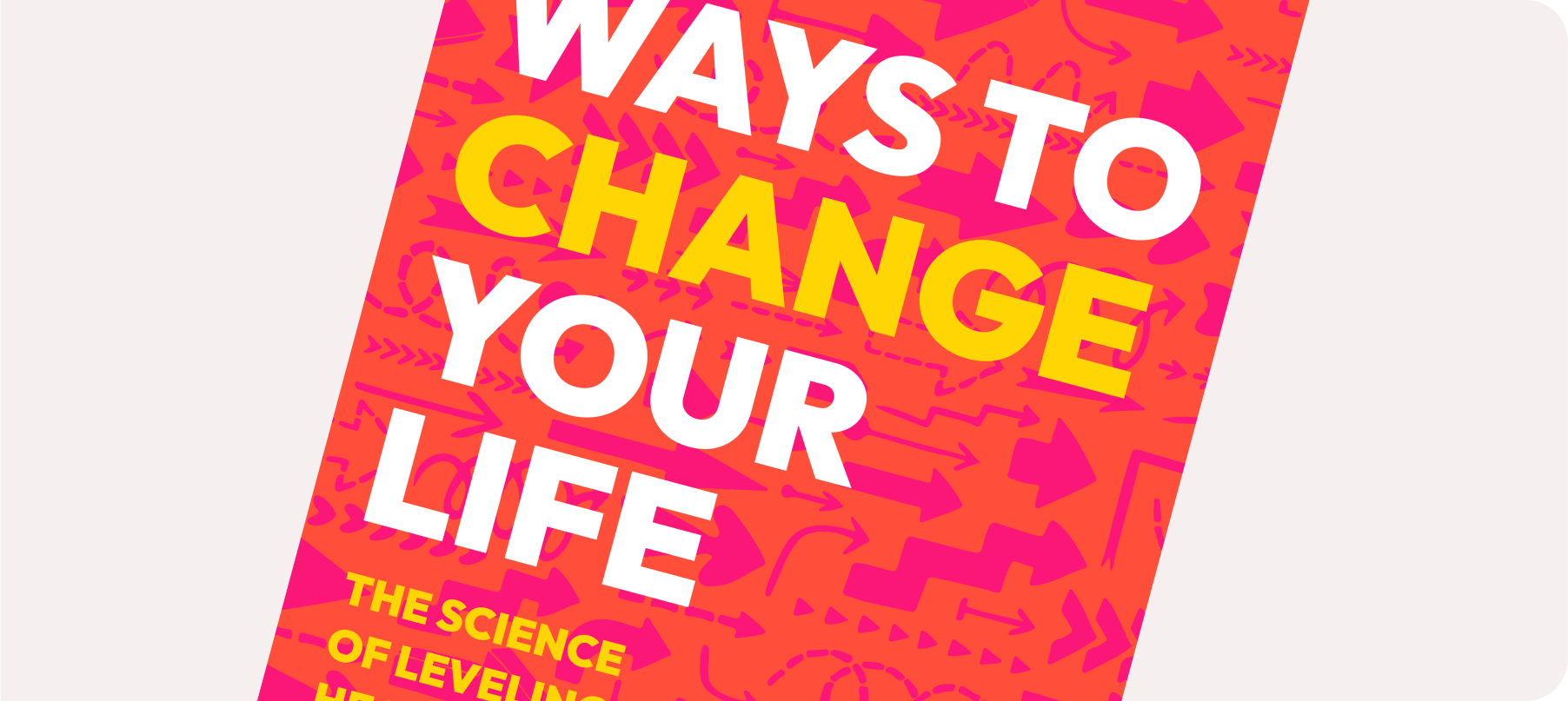
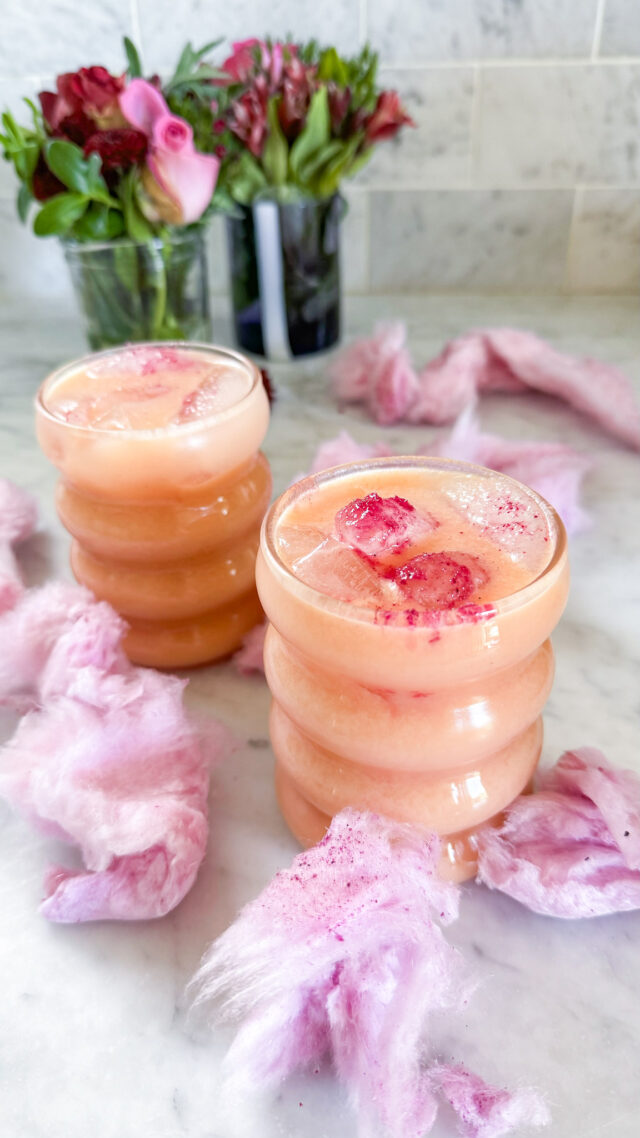





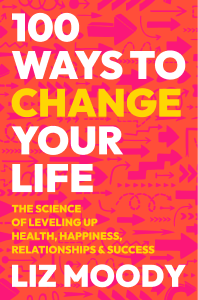
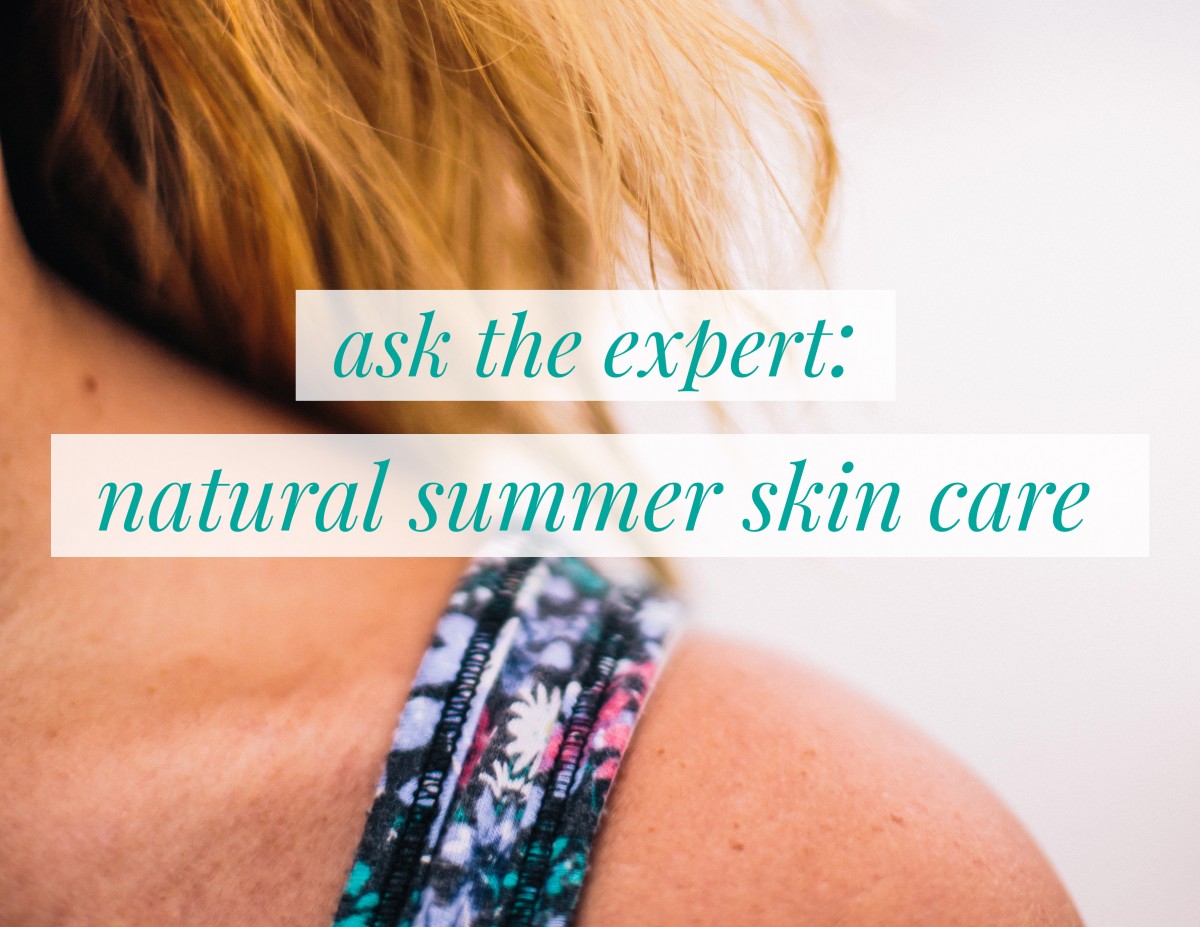
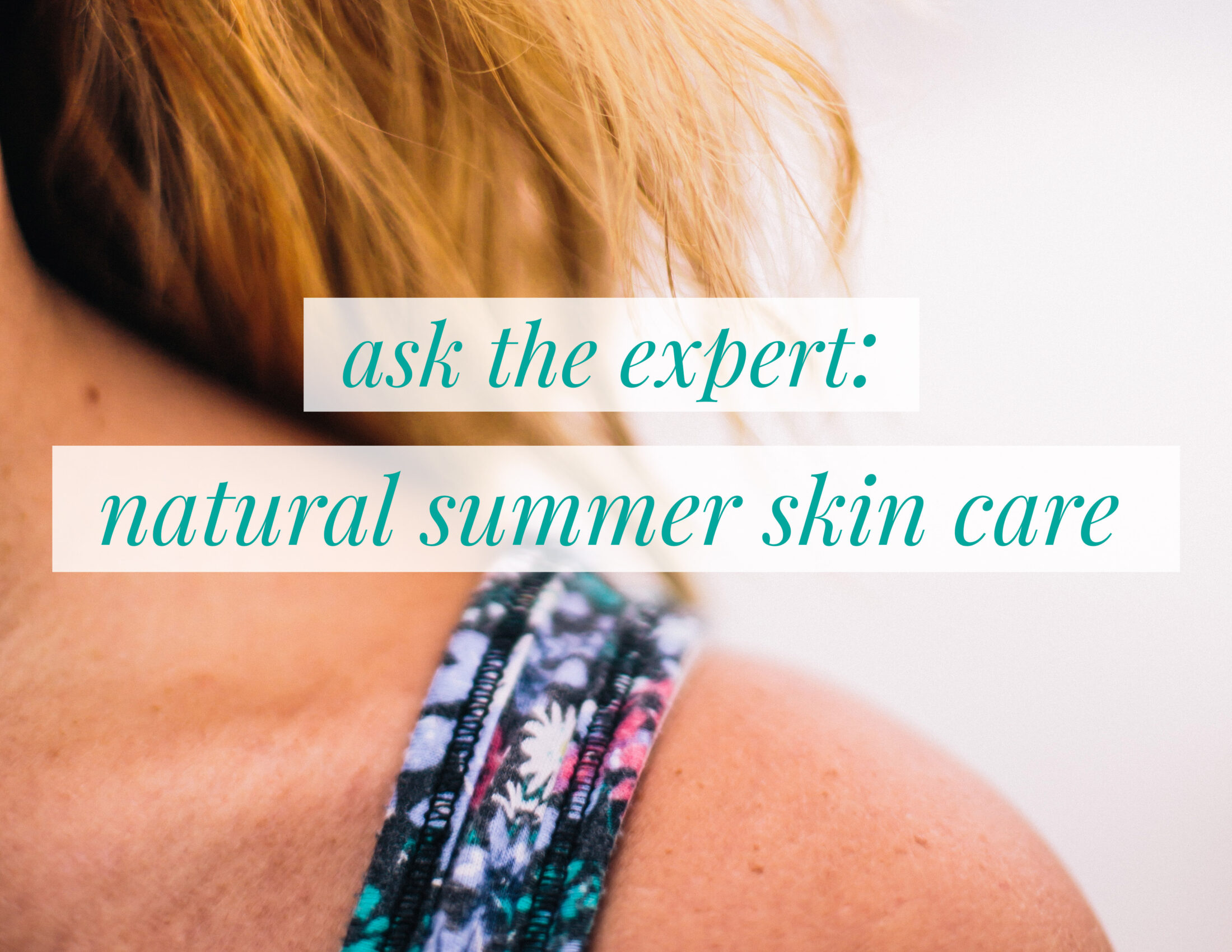
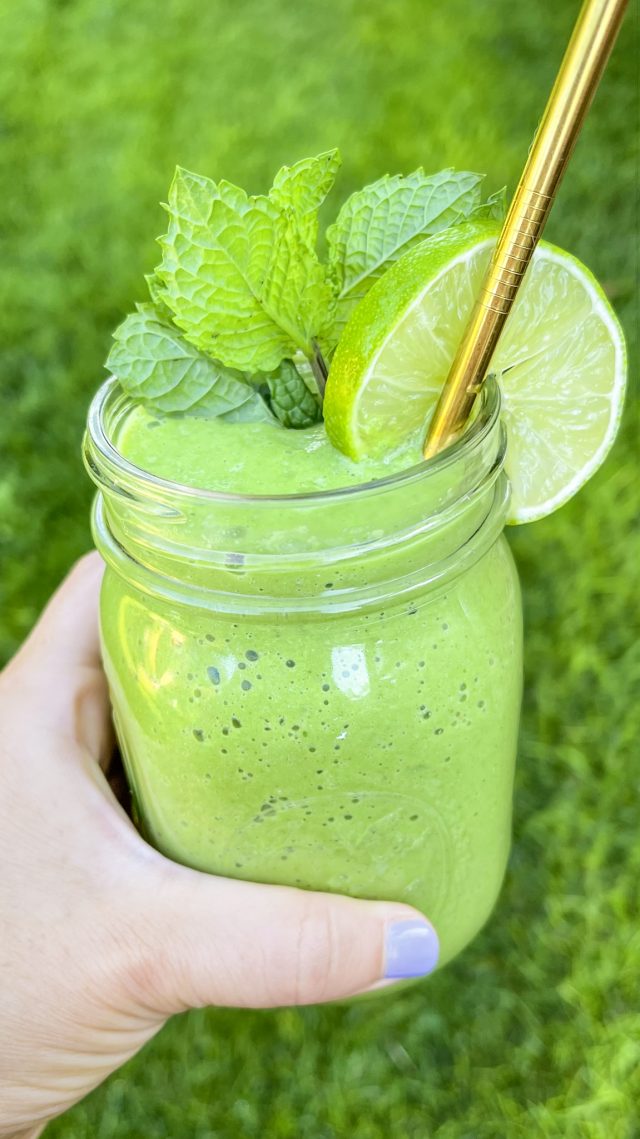
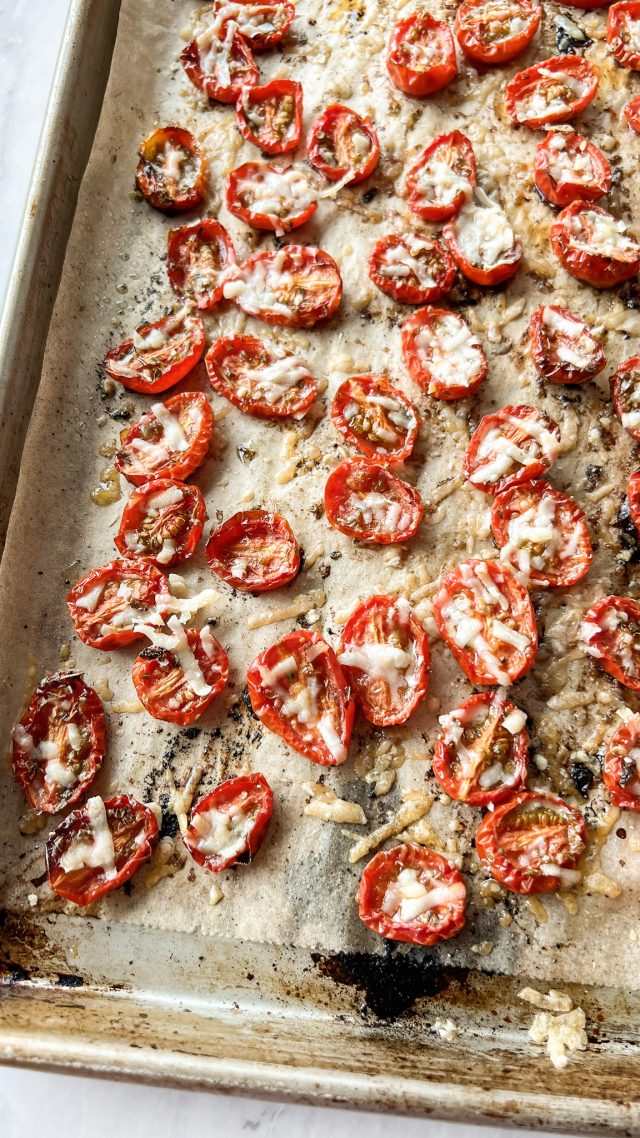

Leave a Reply